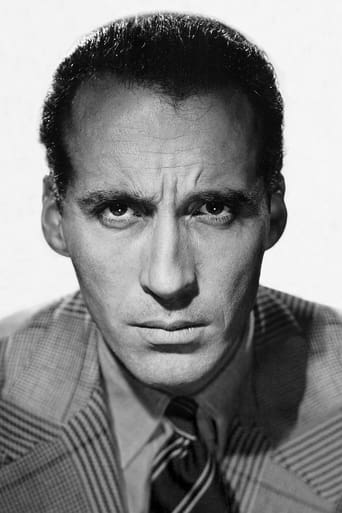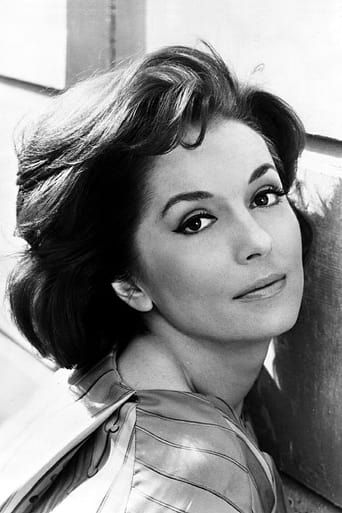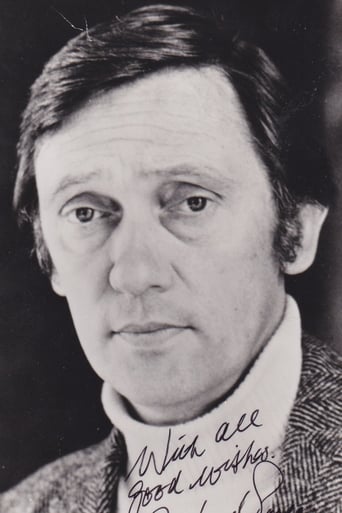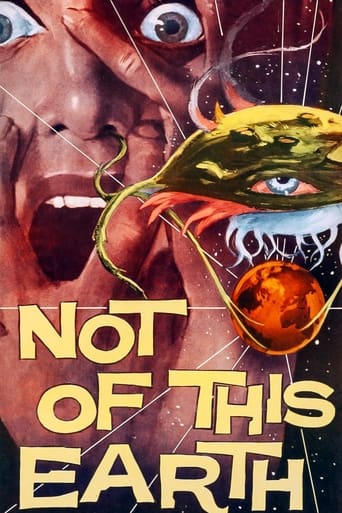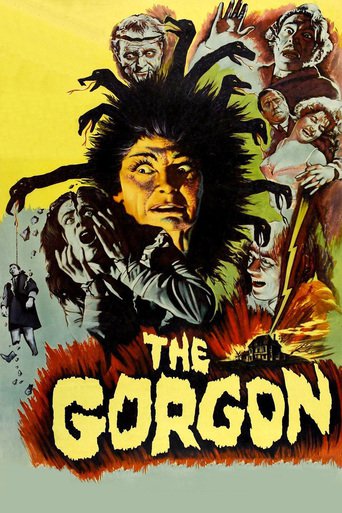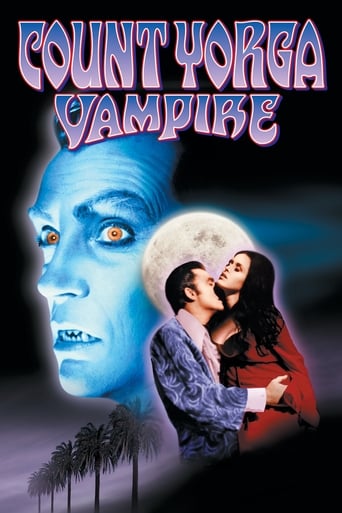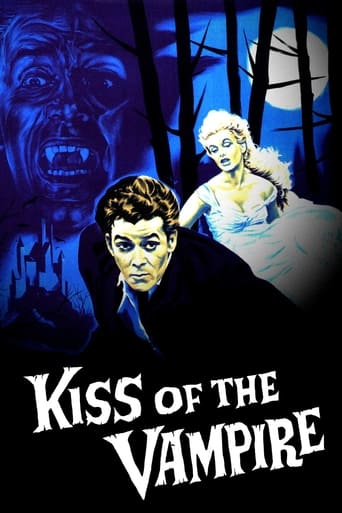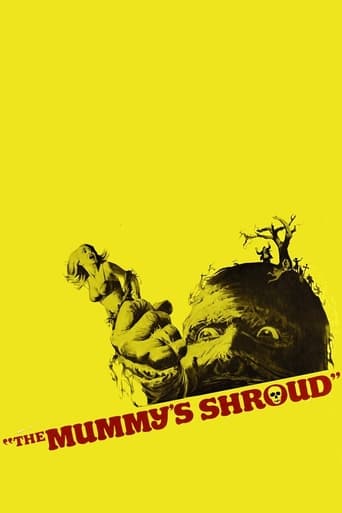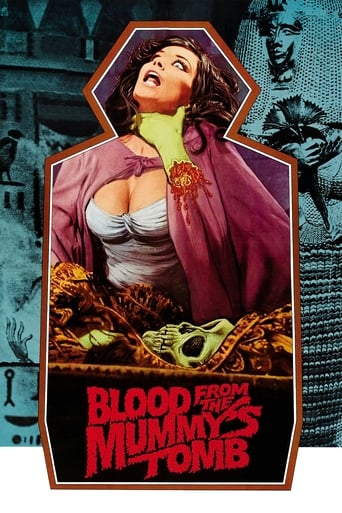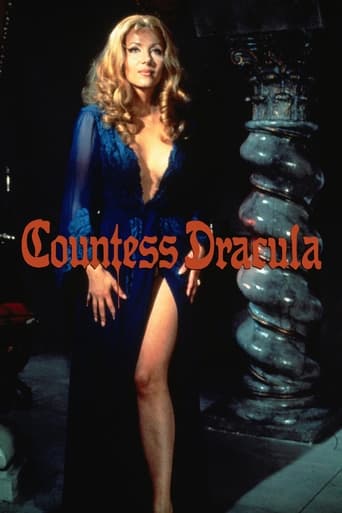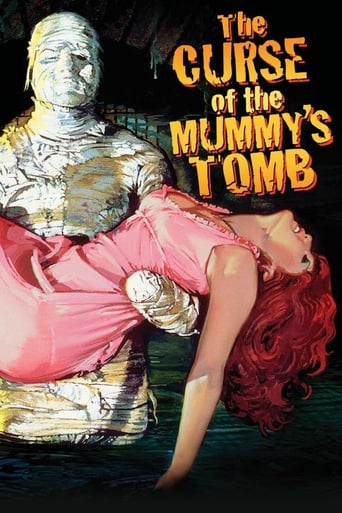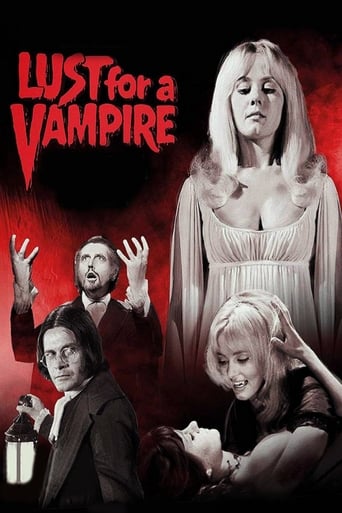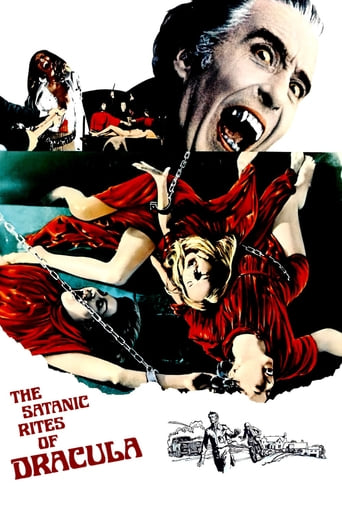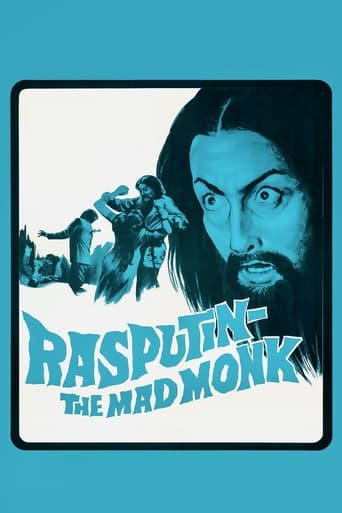
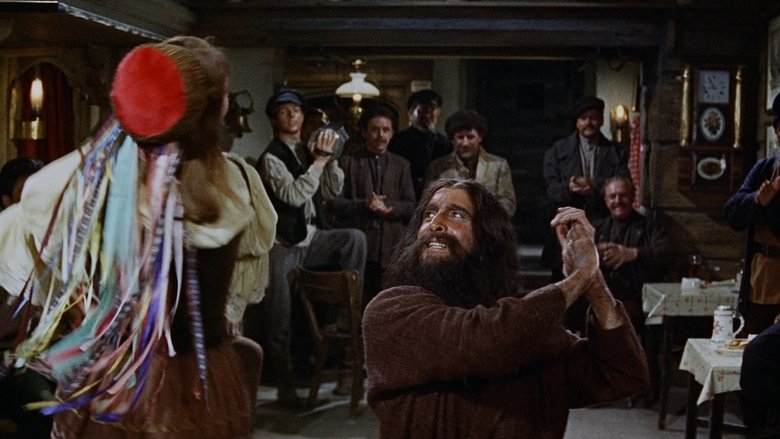
Rasputin: The Mad Monk (1966)
Rasputin, a crazed and debauched monk wreaks havoc at the local inn one night, chopping off the hand of one of the drinkers. As the bitter locals plan their revenge, the evil Rasputin works his power over the beautiful women who serve at the Tsar's palace. Even the Tsarina herself is seduced by his evil ways and, as his influence begins to dominate government policy, there is only one course of action left... to destroy him before he destroys them all.
Watch Trailer
Cast


Similar titles
Reviews
not the historical accuracy is its best part. not the coherence of script. because it is only a portrait of a character who remains fascinating for large public. and only important thing is the performance of Christopher Lee who is real admirable. so, a thriller inspired by old recipes of genre. the mad man, puzzle from legends, the Imperial Russian Court and the fight against him . the atmosphere preserves the mark of Cold War. Rasputin becomes, scene by scene, symbol of obscure East who could not be explain but is useful for convincing script.the work of Christopher Lee is the basic element who defines the film . because it is only a thriller like many other from the same years. easy scary, eccentric characters, dramatic stories, version of a kind of literature who use poor effects for impress.
Rasputin: The Mad Monk is not one of those films where you should expect a history lesson, about two things are true but apart from that the film does play fast and loose with Rasputin and his life, which will leave historians in despair. As a film on its own terms(which I've always found a much fairer way to judge), while not great and while nowhere near Hammer's best(somewhere in the middle for me), Rasputin: The Mad Monk is fun.It has two main flaws. One is that Rasputin: The Mad Monk has some very confined sets- in number and sometimes visually- that look like they were left over from previous Hammer films(quite a departure from Hammer's usual production values standard), when the film could have shown the beautiful Russian landscapes which would have given more of a sense of place. The wealthy also at times could have been more extravagant, the costumes are very attractive don't get me wrong but the low budget stops it from being more than that. The other flaw with Rasputin: The Mad Monk is the rather shoddy script, that contains flat dialogue, one-dimensional character writing(and this is including Rasputin, one of the 20th century's most colourful and interesting historical figures) while ignoring the political state of Russia at the time which would have brought some tension, and a few decent ideas that were sadly vaguely explored.Francis Matthews is also rather stiff and dull, very like how he was in Dracula: Prince of Darkness, and while she does a decent job still Suzan Farmer has very little to do other than look as fetching as possible. As exciting, hugely entertaining and as tense as the climax was, it also was a touch anti-climatic and Rasputin's death was handled too quickly and too easily(from personal view).However, the lighting is both colourful and eerie, and Rasputin: The Mad Monk is filmed beautifully and stylishly. So the film didn't look completely cheap, despite the obviousness of the low-budget. The music score is thunderously grandiose in the most thrilling of ways, giving off genuine chills and excitement. Sharp's direction is efficient enough, managing to mostly keep the story interesting and maintaining the appropriate mood. The story is mostly fun, and includes some horror elements that are handled with tension and creepy atmosphere without being gratuitous as well as some mystery elements that bring glimpses of suspense.The best thing about Rasputin: The Mad Monk is the cast. Barbara Shelley(better utilised than she was in Dracula: Prince of Darkness) is luminous but also brings vulnerability and vast dramatic intensity, and Richard Pasco is effectively twitchy. Christopher Lee walks away with the film though to the extent that he literally IS the film, with his larger than life presence, wild appearance, chilling penetrating stare and deep and very distinctive voice it's a towering performance in every sense of the word, and it's so much fun to watch him.On the whole, Rasputin: The Mad Monk is not a great film as such and people should look to the 1996 film starring Alan Rickman for a more accurate account of the man and his life, but it does provide some good entertainment when not taken seriously and viewed as it's meant to be and is worth catching for Lee alone. 6/10 Bethany Cox
Shown as part the Hammer double bill that gets shown on the UK Horror Channel the audience might feel rather cheated by the schedulers . Being a Hammer production and starring Christopher Lee you can be forgiven for thinking you're going to be watching a horror film of sorts . Add to that the fact that the station might be called The Horror Channel for a reason and you'll be disappointed that this is in no way a horror movie despite the studio brand name That said it does have a bizarre feel down to director Don Sharp directing everything in a way that he would have directed a horror movie . As you can imagine much of this is achieved by having intrusive scary music blasting all over the soundtrack to tell the audience this scene contains a lot of menace and any second now a monster will be appearing which being a pseudo historical film will not be the case and the only scene approaching horror is a scene where a rubber hand drops past the screen . The emphasis is on "pseudo " which means from a historical point of view there's not a lot to recommend this movie and pales in to insignicence compared to something like DOCTOR ZHIVAGO which was released at the same time and was set in the period and locale . Of some interest is that being a Hammer film the little Englander mentality is present and the characters being foreign all have prominent suntans because all foreigners even ones living in a country like Russia must have suntans . Apart from that there's little other interest to the film unless you enjoy watching the Hammer repertory cast emote and overact in a rather ludicrous manner almost as if they're having a contest to see who can shout the most which has an entertainment value of sorts
Rasputin was such a colorful character that movies have found him irresistible for nearly a century and he always fascinates no matter what kind of treatment scenarists cook up. Hammer Films whittles the epic tale down to the format of a low-budget horror programmer, starring Christopher Lee in an entertaining and lusty performance as the "mad monk." He delivers what the quickie script requires and is the main reason to watch. The emphasis is on the title character's prodigious appetite for liquor and women, quasi-supernatural powers of hypnosis and healing, brute strength and general boorishness. He is presented as a crudely power-hungry figure brazenly manipulating his way up the social ladder from rural obscurity to the chambers of the Tsarina. The historical context in which he rises to power (the decline of the aristocracy, the shadow of revolution, the dislocations of war, the fatal trust of the Tsarina in his demented political recommendations) is pretty much eliminated. Early 20th century Russia is portrayed through the use of well decorated studio interiors, with only one crowd scene in a city marketplace. World War One, which was raging during Rasputin's final days, is not even mentioned in passing, though his relationship with the royal family is sketchily dramatized. Even his eventual assassination, as gory and nasty as they come, leaves out a great deal, including the gunshots, beating, and disposal of his corpse into the Neva River, concentrating instead on the poisoned food (candies here, cakes in reality) and drink. In this bare-bones treatment, a handful of characters is invented to represent the large numbers of individuals whose negative experiences with Rasputin added up to a widespread desire for his demise. The scenario is in the "kill the monster" vein. Not bad overall.


